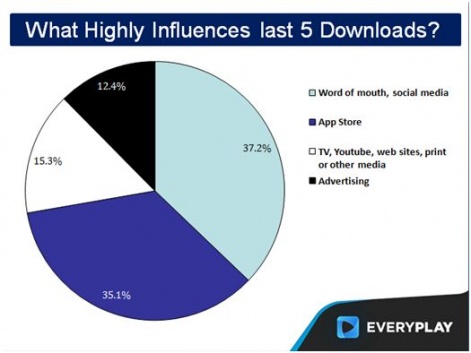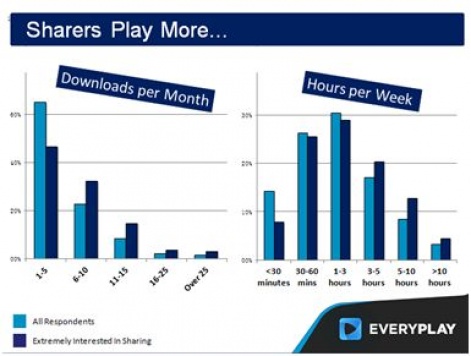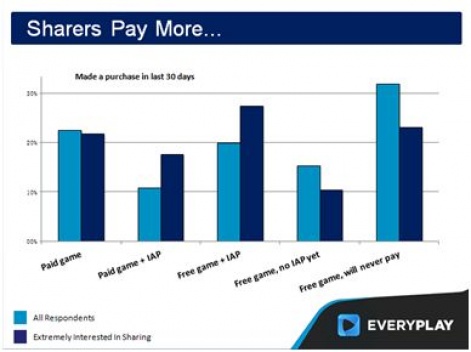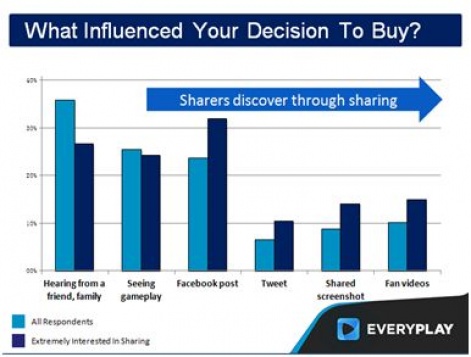An online/mobile expert since 1998, Oscar Clark is the Evangelist for gameplay video sharing tool Everyplay from Applifier.
Following on from last month, when I talked about how we need to stop bickering about premium or freemium, in this month's article I want to challenge another of our F2P sacred cows.
The whale.
Now I've been as guilty as most when telling designers of the importance of these most dedicated of fans. And I've tried (and often failed) to lend support to Nicholas Lovell's attempt to help us describe these players are what they are 'true fans'.
But it's never really stuck for me and I think I know why. We define these players by how much they spend, not by their gameplay behaviour.
I know I have talked as much as anyone about how the players who spend $100 per month provide the best measure of the success of the game. The trouble is that whenever we focus on things we can measure, we inevitably become fixated on the variables we use to measure them.
If we consider the revenue per dedicated user alone, we forget to look as much at the reasons for the non-paying players to return. When we consider the cost of advertising, we forget about the value of less measurable ways to acquire users (such as word of mouth).
So given our obsession with revenue (and it's not all bad, by the way) is it any wonder we find ourselves in a position where government bodies like the OFT in the UK end up investigating our practices?
Perspective shift
I would argue that our best players are those who repeat play. That includes the non-payers and the whales.
The people who spend once and churn are probably the most dangerous for us. These could well be players who didn't like the way we monetise the game and who we failed to delight.
Perhaps we would be better served by finding ways to keep them playing and paying; even if they only spend 99c every other month.
I think it's time to take a step back and look at what matters to us all. It's not (just) about making $2.4m per day (assuming you are SuperCell) it's about creating games people will love to play.
So at Applifier we did a survey of 1,800 active games players and asked them what influenced their decisions to download, play and pay for apps and we found a number of very interesting things.
For the record, the survey was 63 percent male, 64 percent 18-24 year olds, and conducted online.
The players had a broad range of interests including all the genres, but (as is fairly common among mobile games) with a slight bias towards playing puzzle games. And we found that on average they downloaded 1-3 games per month and played (or at least admitted to) 1-3 hours per week.
When asked what most influenced their decision to purchase, we found that the largest influence was word of mouth or social media, which included everything from friends showing the game, to Facebook posts or watching gameplay videos.

This data should be hardly surprising as it mirrors the findings of a 2012 EEDAR survey. Indeed when compared with the Nielsen Q3 2011 survey, there is a case to suggest that word of mouth has now overtaken search and app store features as the primary driver of app discovery.

For me, our Applifier survey becomes more interesting when you compare average behaviour with those who self-identify as 'sharers'.
It seems that our sharers download more games per month on average and they play more hours. Perhaps only a modest proportion more but enough to be statistically significant.

More importantly they pay more particularly with F2P games, but also with 'paymium' titles.
However, that's not what I think is most significant on this chart. The sharers are much less likely to say they are playing a game they will 'never pay' for and similarly only 10 percent say they are currently playing a F2P game in which they have yet to spend money on in-app purchases.

And is it any surprise that what influences them to make a download or purchase is through the sharing experience itself?
For me, this is the first time where I think there is a better way to segment players than just by how much they spend.
Replay value
There are behaviours inherent to making better, more enjoyable games when we use sharing behaviour as a way to segment our users.
And this approach allows us to maximise not only revenue, but the propensity to support both discovery and retention as well.
If we are going to start using sharers as our target player, we inherently have to focus on replay value in our games.
But more than that, we know we need to create personal meaningful moments of emotion and help them share those with people who matter to them.
It has to become an essential aspect of our game and what makes the experience fun.
Thinking like this can help us elevate ourselves away from the perpetual grind to get every dollar at every moment. Instead, it can help us build lifetime value in our games games that players truly love and that become meaningful to those with whom they share these moments.
This way I believe games as a service can lead to better experiences, delighting players and creating reasons to return based on the expectations of what your friends and other true fans of the game really love about it.
Perhaps this is an idealistic view of the world. But it's a view I've arrived at based on the videos we see shared everyday on Everyplay, the comments and likes as well as the people who choose to go on to download the game.
Maybe its time to stop hunting whales and start supporting sharers.
To find out more about what Oscar's evangelising, visit the Everyplay website. To find out more about Oscar's minute-by-minute existence, follow him on Twitter.





















